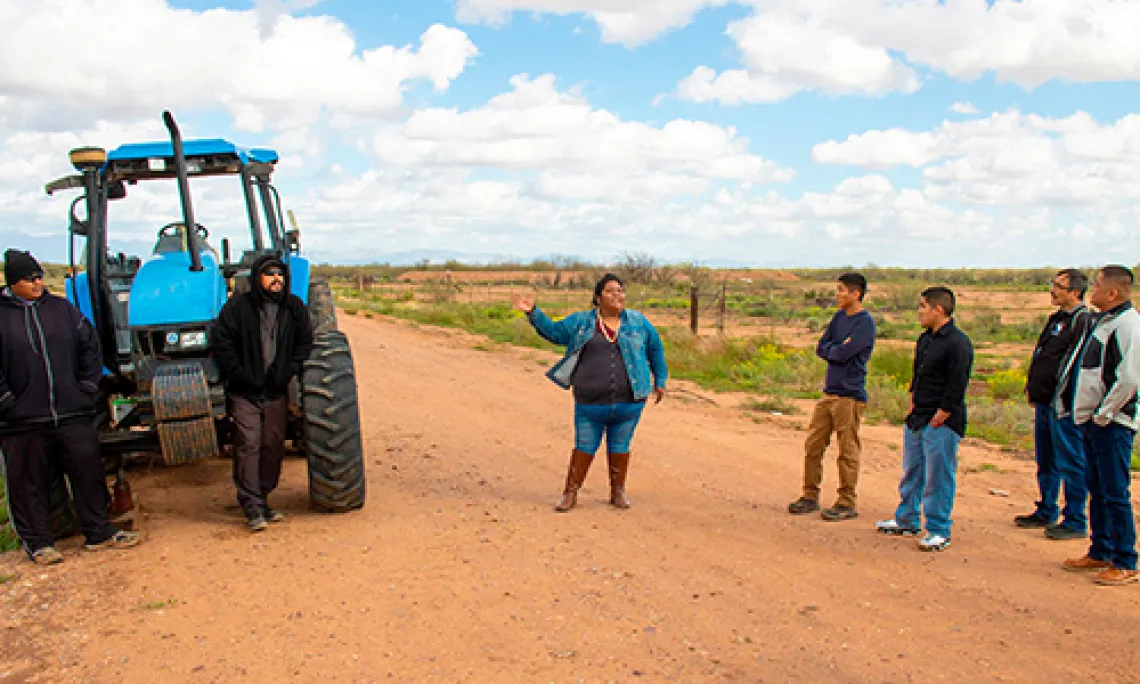The Indigenous Foods Knowledges Network Returns to the Desert

On March 12-15, the Indigenous Foods Knowledges Network (IFKN) convened its second meeting for scholars, educators, and practitioners to discuss current research and community capacity building. The Network seeks to build connections among Indigenous communities in the Arctic and the US Southwest. Office of Polar Programs at the National Science Foundation funds IFKN (Award number 174599). Twenty-nine people representing 12 nations attended the meeting hosted by Amy Juan, the (Tohono O'odham Nation) and Sustainable Nations. NNI Research Analyst Mary Beth Jäger (Citizen Potawatomi) and NNI Associate Director and Manger Tribal Health Programs Stephanie Carroll Rainie (Ahtna Athabascan) helped plan and participated in the meeting.
For the first two full days of the meeting participants spent time on the Tohono O’odham Reservation. Dr. Selso Villegas, Director of Water Resources for the TO Nation, talked with participants about climate change planning and the intersection of governance and resource availability. Jäger commented Dr. Villegas’ comments stuck her around the need for a nation to know how it will access water, not just today, but tomorrow. It is not merely a resource challenge; instead, it is an exercise of sovereignty and continued existence. Participants also met with James Martinez, caretaker of Waw Giwulk Du'ag, Baboquivari Peak Park, where they spent time with the land and a sacred area for the Tohono O’odham people. Jager emphasized one of the important components of these meetings are for participants to spend time on the land and be with it. Tours of the TO Community Action Flood Farm, Project Oidag, and the San Javier Cooperative Farm were given to share traditional farming and food production practices used in desert regions.
The final day of the event was spent at the University of Arizona (UA) and ended in a roundtable discussion. To start the roundtable discussion Cyrus Harris from the Maniilaq Association Hunter Support from Alaska presented on seal hunting, uses for seal oil, and federal food regulations and tribal food codes as they relate to traditional foods. Multiple scholars, staff, and faculty, including Assistant Vice President of Tribal Relations Karen Francis-Begay and Senior Program Coordinator Jesse Navarro from the UA, joined the discussion. Topics covered included the promotion of ethical research, Indigenous data governance, storytelling, and institutional roadblocks.
Look for further IFKN stories later this summer after Chickaloon Village hosts an IFKN meeting in June in Alaska.

